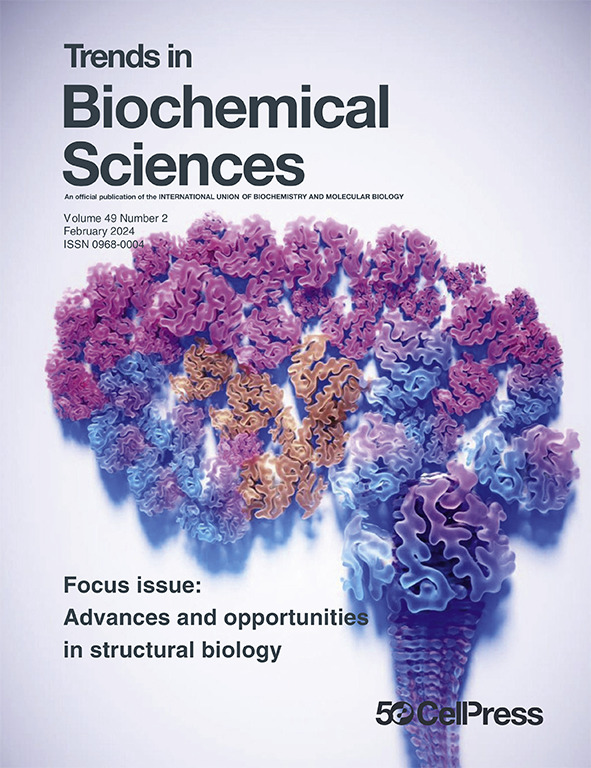将大脑胰岛素抵抗与阿尔茨海默氏症发病机制联系起来。
IF 11.6
1区 生物学
Q1 BIOCHEMISTRY & MOLECULAR BIOLOGY
引用次数: 0
摘要
越来越多的证据表明,2 型糖尿病(T2DM)和阿尔茨海默病(AD)之间存在联系,而脑胰岛素抵抗(BIR)是其中的一个关键因素。在最近的一项研究中,Lanzillotta 等人发现,胆绿素还原酶-A(BVR-A)的减少会损害糖原合成酶激酶 3β (GSK3β)的磷酸化,导致线粒体功能障碍,并在 T2DM 和 AD 的进展过程中加剧脑胰岛素抵抗。本文章由计算机程序翻译,如有差异,请以英文原文为准。
Bridging brain insulin resistance to Alzheimer’s pathogenesis
Emerging evidence links type 2 diabetes mellitus (T2DM) and Alzheimer’s disease (AD), with brain insulin resistance (BIR) as a key factor. In a recent study, Lanzillotta et al. reveal that reduced biliverdin reductase-A (BVR-A) impairs glycogen synthase kinase 3β (GSK3β) phosphorylation, causing mitochondrial dysfunction and exacerbating brain insulin resistance in the progression of both T2DM and AD.
求助全文
通过发布文献求助,成功后即可免费获取论文全文。
去求助
来源期刊

Trends in Biochemical Sciences
生物-生化与分子生物学
CiteScore
22.90
自引率
0.70%
发文量
148
审稿时长
6-12 weeks
期刊介绍:
For over 40 years, Trends in Biochemical Sciences (TIBS) has been a leading publication keeping readers informed about recent advances in all areas of biochemistry and molecular biology. Through monthly, peer-reviewed issues, TIBS covers a wide range of topics, from traditional subjects like protein structure and function to emerging areas in signaling and metabolism. Articles are curated by the Editor and authored by top researchers in their fields, with a focus on moving beyond simple literature summaries to providing novel insights and perspectives. Each issue primarily features concise and timely Reviews and Opinions, supplemented by shorter articles including Spotlights, Forums, and Technology of the Month, as well as impactful pieces like Science & Society and Scientific Life articles.
 求助内容:
求助内容: 应助结果提醒方式:
应助结果提醒方式:


